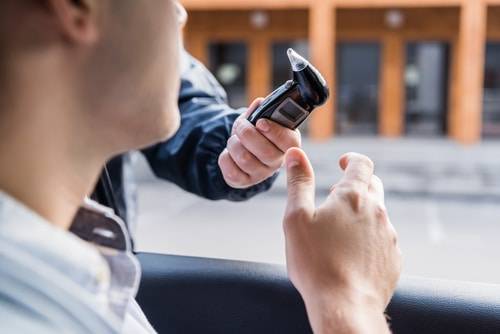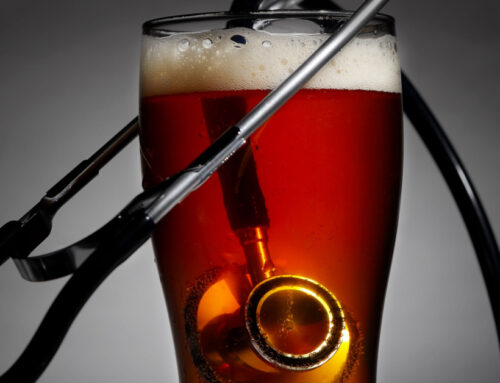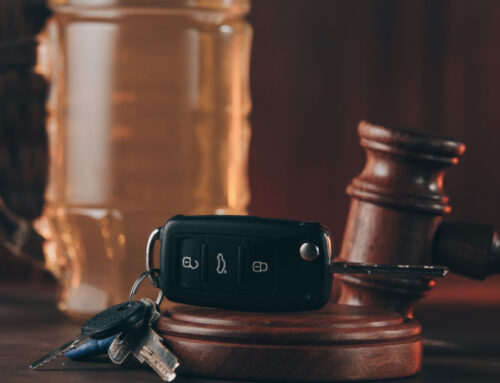If you got pulled over for drunk driving and refused the breath test, you may have been surprised when the officer arrested you for driving under the influence (DUI). Without evidence of your blood alcohol concentration (BAC), how could the officer establish probable cause for a DUI arrest? Even more importantly, how will prosecutors be able to prove that you were driving drunk in court?
The relevance of a driver’s BAC is one of the most widely misunderstood aspects of Arizona’s DUI law. While many people seem to think they can avoid a conviction if they don’t provide a breath sample, this is not the case. In fact, not only can you face a DUI conviction in Arizona regardless of your BAC, but you can also face an additional conviction for an “implied consent” violation.
Understanding the Two Ways Arizona Prosecutors Can Prove DUI
We need to look at Arizona’s DUI law to understand why prosecutors can prove a DUI case without a driver’s BAC reading. Under the law, there are two ways that prosecutors can build a DUI case—one that requires the driver’s BAC and one that does not.
First, let’s examine how prosecutors can prove DUI based on BAC. Section 28-1381.A.2. of the Arizona Revised Statutes states:
“It is unlawful for a person to drive or be in actual physical control of a vehicle in this state . . . [i]f the person has an alcohol concentration of 0.08 or more within two hours of driving or being in actual physical control of the vehicle and the alcohol concentration results from alcohol consumed either before or while driving or being in actual physical control of the vehicle.”
This section of the law focuses solely on the driver’s BAC. If a driver has a BAC of 0.08% or above, the driver is guilty of DUI. In this case, proof that the driver’s abilities were impaired is not required.
Let’s look at how prosecutors can prove a DUI case without the driver’s BAC. Under Section 28-1381.A.1. of the Arizona Revised Statutes:
“It is unlawful for a person to drive or be in actual physical control of a vehicle in this state . . . [w]hile under the influence of intoxicating liquor . . . if the person is impaired to the slightest degree.”
As you can see, this statute section does not refer to the driver’s BAC. In a prosecution under Section 28-1381.A.1., if the government can prove that the driver was impaired by alcohol “to the slightest degree,” then the driver’s BAC is irrelevant.
So, What Does it Mean for Your Case if You Refused the Breathalyzer?
Given that prosecutors in Arizona can prove DUI without a driver’s BAC, what does it mean for your case if you refused the breathalyzer? Here are some key considerations:
1. Prosecutors Can Use Several Forms of Evidence (Besides BAC) to Prove Impairment
Even if prosecutors don’t have your BAC because you refused the breath test, they may be able to secure a conviction using various other forms of evidence of impairment. Some examples of the types of evidence Arizona prosecutors can use in DUI cases include:
- Dash camera or body camera footage
- The arresting officer’s observations and testimony
- The driver’s statements to the arresting officer
- The driver’s field sobriety test (FST) results
- An open container in the driver’s vehicle
2. Prosecutors May Try to Use Your Refusal Against You in Your DUI Case
If prosecutors don’t have your BAC because you refused the breathalyzer, they may try to use your refusal against you. For example, they may say your refusal to provide a blood sample suggests you knew you were too drunk to drive.
Of course, there are many other reasons why someone might refuse to take the breathalyzer on the side of the road. Maybe you were worried, confused, or scared. Perhaps you didn’t want the breathalyzer to return a “false positive.” Or, perhaps you weren’t aware that you must submit to testing under Arizona’s “implied consent” law.
3. Your Refusal Can Have Consequences Regardless of the Outcome of Your DUI Case
An “implied consent” violation is a separate offense from a DUI. Regardless of whether you were drunk behind the wheel, if you are found guilty of violating Arizona’s “implied consent” law, you can lose your driver’s license for up to 12 months for a first-time offense.
4. You Will Need to Defend Your Driver’s License and Your Freedom
While refusing the breathalyzer can lead to a driver’s license suspension, driving under the influence can lead to jail time and numerous other consequences. You must fight your case by all means available to avoid these consequences. While there are several ways to fight a DUI charge (and an “implied consent” violation), there are also several costly mistakes you need to avoid. You need to make informed decisions to protect yourself, and this starts now.
5. Your Next Step is to Hire an Experienced DUI Defense Lawyer
To ensure you make informed decisions about your case, you must work with an experienced DUI defense lawyer. Your lawyer can deal with the government on your behalf and explain everything you need to know as your case progresses. Your lawyer can determine what defenses you have available, assert these defenses on your behalf, and fight to achieve the best possible outcome in light of the circumstances at hand.
Discuss Your Case with an Arizona DUI Defense Lawyer at The Weingart Firm
If you are facing a DUI charge after refusing the breathalyzer in Arizona, we strongly encourage you to contact us for more information. To discuss your case with an experienced Arizona DUI defense lawyer at The Weingart Firm as soon as possible, call 480-405-7922 or request a free initial consultation online today.






